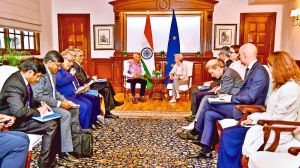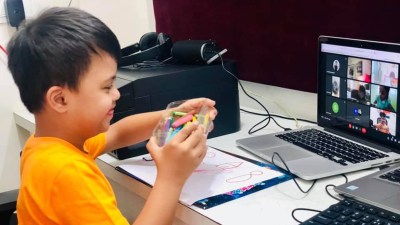The Great Escape
A documentary recounts the tale of 1,000 Polish children,who were given refuge by a Maharaja in Gujarat during World War II
Wieslaw Stypula was 11 when he left his home in Poland with other children to join a camp in Balachadi,Gujarat. It was in 1942 when Stalins Red Army had occupied Poland,creating much collateral damage among them homeless and orphaned children. A plea for help by the then Polish Prime Minister led Maharaja Digvijaysinghji Ranjitsinghji Jadeja of Nawanagar (a princely state in the Kathiawar region) to take those children under his wing.
I found myself alone. I was hungry and sick. In this very grim scenario,I was adopted by people of a country I did not even know. It was here that I found happiness, says Stypula,who narrates his story in the documentary,A Little Poland in India. The film traces the lives of five inmates of the camp. Built by the Maharaja,who funded their stay,the camp had over 1,000 Polish children who had travelled through Iran and Afghanistan to reach here.
Directed by Delhi-based documentary filmmaker duo Anu Radha and Sumit Osmand Shaw,the 52-minute film takes a closer look at this less-known chapter of World War II history. The film comprises interviews with Polish survivors from the Balachadi camp and recounts their stories spanning from 1942 to 1946. It is embellished with personal accounts from the son and daughter of the late Digvijavsinghji,Shatrushalya Singhji and Hershad Kumari Ji respectively.
History notes that the Polish children arrived at the camp at Balachadi in 1942 and,in later years,moved to a second camp in Valavadi,Maharashtra. However,the film focuses on the Balachadi camp set up near the Maharajas summer palace in Nawanagar. We focused on them because they had no relatives or loved ones,while the Valavadi camp had some members from their families living with them, says Radha,who worked on this project for over two years.
The director duo use sand art illustrations in the film to show the passage of time. Among the five,is a couple who married in 2007,years after meeting and falling in love at the camp. Stypula,over 80 now,is the only one who is shown travelling to Balachadi,while another inmate,Jan Bielecki,passed away during the making of this film.
There are anecdotes from the camp in the film. One day,all the children at the camp organised a protest,called the spinach strike since they detested eating greens every day. Another tells how he overcame his fear of water and learnt to swim in the sea near the camp. They also recalled how the Maharaja would cheer for their team during football tournaments when they played against the local children.
Made on a joint audio-visual agreement between the Polish and the Indian cultural ministries,Radha says that besides research material available in print and online,the book,Poles in India 1942-1948,(published by the Polish Government) which had stories from survivors,served as a Bible of sorts for the film crew.







